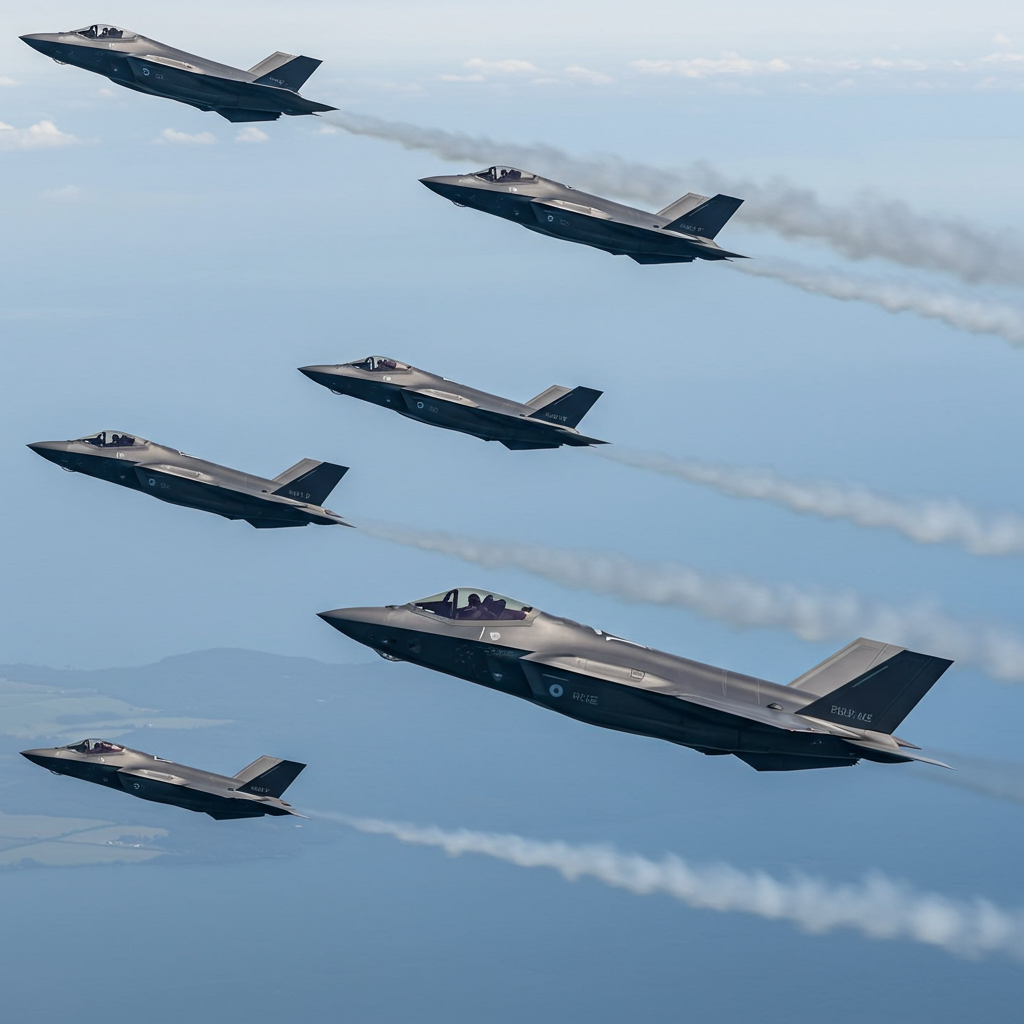The volatile Israel-Gaza conflict has reached a critical diplomatic flashpoint. Amidst ongoing Israeli military operations in the Gaza Strip, a growing number of nations, including France, the U.K., Canada, and Australia, have formally recognized Palestinian statehood. This wave of international diplomatic recognition has been met with an unequivocal and forceful rejection from Israeli Prime Minister Benjamin Netanyahu, who has repeatedly declared, “There will be no Palestinian state.” This escalating standoff between international pressure and Israel’s steadfast resolve profoundly shapes the future of the region.
Escalating Tensions: Nations Recognize Palestinian Statehood
The international community is witnessing a significant push to formally recognize a Palestinian state. This diplomatic momentum comes amidst intensifying military action in Gaza and increasing global concern over the humanitarian situation. Advocates for this recognition believe it’s a vital step towards achieving a lasting peace and a two-state solution, which envisions an independent Palestinian state coexisting peacefully alongside Israel.
A Wave of Diplomatic Recognition
Recent weeks have seen a notable acceleration in countries recognizing Palestinian statehood. France, a key European player, formally announced its decision, with President Emmanuel Macron addressing the United Nations General Assembly in New York. Macron emphasized the urgency of ending the war in Gaza, releasing all hostages, and condemned the October 7th attacks, stating, “We can no longer wait” for peace. This move by France follows similar declarations from the United Kingdom, Canada, Australia, and Portugal. Several other nations are expected to follow suit, further solidifying the international consensus. Over three-quarters of the UN’s 193 members now recognize a Palestinian state, though significant nations like the U.S., Israel, Italy, and Germany do not.
The Rationale Behind International Moves
The motivations for these diplomatic shifts are multifaceted. Many nations believe that recognizing Palestinian statehood is the only viable pathway to resolve the decades-long Israeli-Palestinian conflict. Proponents argue that the current status quo, with Palestinians living under varying degrees of Israeli control, is unsustainable and could lead to a permanent, unequal system. UN Secretary-General António Guterres has echoed this, stating, “Without a two-state solution, there will be no peace in the Middle East.” The dire humanitarian crisis in Gaza, where a UN-backed body confirmed famine in some areas due to aid obstruction, further fuels international calls for a definitive political resolution and an end to the conflict.
Israel’s Unwavering Rejection and Counter-Stance
Despite the growing international chorus for a Palestinian state, Israel’s leadership remains resolute in its opposition. Prime Minister Benjamin Netanyahu has been uncompromising, reiterating his government’s firm stance against any such recognition, especially under current circumstances.
Netanyahu’s Firm “No Palestinian State” Declaration
Prime Minister Netanyahu has made his position unequivocally clear. He has stated multiple times, “There will be no Palestinian state,” and further emphasized, “It will not happen. A Palestinian state will not be established west of the Jordan River.” This declaration underscores Israel’s deep-seated security concerns and its commitment to preventing the emergence of a state perceived as hostile. Netanyahu has also affirmed his government’s intent to continue expanding Israeli settlements in the West Bank, a move considered illegal under international law by many, further complicating the prospects of a future Palestinian state. Israel’s UN Ambassador Danny Danon also declared the two-state solution “off the table” following the October 7th attacks, calling recent UN talks a “charade.”
Israeli Foreign Ministry and Hostage Families’ Condemnation
The Israeli Foreign Ministry has echoed Netanyahu’s sentiment, asserting that recognizing a Palestinian state at this time “will push the desired peace further away.” The ministry urged nations to instead focus on pressuring Hamas to release the remaining hostages and disarm immediately, implying these actions are prerequisites for regional stability. The Hostage Families Forum has also condemned the international recognition announcements. Their statement highlights that such moves “turn a blind eye” to the 48 hostages still held captive by Hamas. They urged responsible international action, stipulating that any “day after” discussions—referring to post-conflict arrangements—should only occur after all hostages are safely returned home. They believe recognizing a Palestinian state now would “reward terrorism” and empower Hamas.
Military Operations Intensify in Gaza
While diplomatic tensions escalate, the Israel Defense Forces (IDF) are continuing their significant military operations within the Gaza Strip, particularly in Gaza City, the largest urban area. These operations are a direct response to the October 7th attacks by Hamas.
IDF’s Strategic Offensive in Gaza City
The IDF launched its strategic operation in Gaza City last week, deploying multiple divisions. The 162nd and 98th divisions are actively pressing into the “heart” of the city, with the 36th division joining the offensive over the weekend. The IDF reported killing “approximately 15” fighters in Gaza City during these ongoing operations. This sustained military effort aims to dismantle Hamas’s infrastructure and regain control of key areas within the urban landscape.
Targeted Strikes and Wider Operations
Beyond ground operations, the IDF has conducted a series of targeted strikes. Artillery units attacked a structure identified as a launch site for two rockets fired by Hamas fighters towards Israel on Sunday. Additionally, Israeli warplanes operating over Gaza City struck what the IDF described as a factory producing military equipment and a nearby group of fighters. The IDF also confirmed additional strikes in Khan Younis and Rafah, located in the southern part of the Gaza Strip. These widespread operations highlight Israel’s commitment to its stated objective of eliminating Hamas’s military capabilities across the territory.
The Broader Geopolitical Landscape and Risks
The current diplomatic and military developments are unfolding against a complex geopolitical backdrop, with significant implications for regional stability and international relations. The deeply entrenched positions of the parties involved present formidable challenges to any lasting resolution.
Potential Israeli Retaliation: Annexation Warnings
The prospect of international recognition of a Palestinian state has led to speculation about potential Israeli retaliation. Prime Minister Netanyahu has indicated that Israel will disclose its response after returning from visits to the UN and Washington. One significant concern is Israel’s potential annexation of parts or all of the occupied West Bank. Israel’s UN Ambassador Danny Danon previously referred to this as “applying sovereignty” rather than annexation, citing precedents in the Golan Heights and East Jerusalem. Such a move would be highly controversial and is viewed by many as a critical blow to the two-state solution, making a viable Palestinian state virtually impossible. European officials, Saudi Arabia, and the UAE have issued strong warnings against any Israeli annexation. The UAE, in particular, views annexation as a “red line,” recalling that a similar warning five years ago helped facilitate the Abraham Accords.
US Position and Divergent Views
The United States, a key ally of Israel, has expressed its disagreement with the recognition of a Palestinian state at this time. A spokeswoman for Donald Trump, Karoline Leavitt, stated that the US believes such recognition does not contribute to freeing hostages, ending the conflict, or bringing peace. Instead, the US views it as a “reward for Hamas.” This stance underscores the deep divide among global powers regarding the timing and efficacy of diplomatic moves. The potential for Israeli annexation could also jeopardize the Abraham Accords, a significant foreign policy achievement for the Trump administration, impacting regional normalization efforts.
A Faltering Two-State Solution?
The current international push for a two-state solution faces immense hurdles. Historically, peace talks have faltered due to violence and the expansion of Israeli settlements. The ongoing war in Gaza has exacerbated an already dire situation, leading to tens of thousands of Palestinian deaths and widespread displacement. A phased plan, recently endorsed by the UN General Assembly as the “New York Declaration,” aims to end the conflict by establishing a demilitarized state governed by the Palestinian Authority (PA) with international assistance. This plan includes calls for a ceasefire, hostage returns, Israeli withdrawal, and Hamas disarming. However, it deliberately sidesteps divisive “final status” issues and relies heavily on the unpopular PA. Given the profound challenges and entrenched opposition, many analysts warn that this plan, like its predecessors, may join a “mound of past Mideast accords,” leaving the fundamental conflict unresolved.
Frequently Asked Questions
What are the main reasons nations are recognizing a Palestinian state now?
Nations are increasingly recognizing a Palestinian state primarily due to a renewed international push for a two-state solution, heightened by the ongoing Israel-Gaza conflict and the escalating humanitarian crisis in Gaza. Many believe this is the only viable path to lasting peace, offering a framework for an independent Palestinian state alongside Israel. The move also serves as a diplomatic signal to pressure Israel and to underscore the urgency of ending the conflict and addressing the suffering of Palestinians. French President Emmanuel Macron specifically cited the need to end the war and release hostages.
How has Israel, particularly Prime Minister Netanyahu, responded to the recognition of Palestinian statehood?
Israeli Prime Minister Benjamin Netanyahu has responded with an unequivocal and firm rejection. He has repeatedly stated, “There will be no Palestinian state,” and clarified that “It will not happen. A Palestinian state will not be established west of the Jordan River.” Israel views such recognition, especially during wartime, as a “huge reward to terrorism” that would embolden Hamas and undermine Israel’s security. The Israeli Foreign Ministry and the Hostage Families Forum have also condemned these diplomatic actions, urging focus instead on pressuring Hamas to release hostages and disarm.
What are the potential consequences if Israel decides to annex parts of the West Bank in response to international pressure?
If Israel were to annex parts or all of the West Bank in response to international recognition of a Palestinian state, it would likely have severe geopolitical consequences. Such a move would be widely condemned internationally, as it is largely considered illegal under international law. It would effectively make the creation of a viable Palestinian state virtually impossible, dealing a critical blow to the two-state solution framework. This could also jeopardize existing diplomatic ties, potentially impacting the Abraham Accords, which facilitated normalization between Israel and several Arab nations, as countries like the UAE have previously designated annexation a “red line.”
Conclusion
The recent wave of international recognition for a Palestinian state has thrust the Israeli-Palestinian conflict into an unprecedented diplomatic crisis. While nations like France champion the two-state solution as the only path to peace, Israel, led by Prime Minister Benjamin Netanyahu, remains steadfast in its categorical rejection, citing security imperatives and condemning the move as rewarding terrorism. This diplomatic standoff unfolds concurrently with intensifying Israeli military operations in Gaza, further compounding the complexity of the situation. The deep chasm between international calls for sovereignty and Israel’s unwavering stance ensures a prolonged period of geopolitical tension, with the ultimate path to peace remaining deeply uncertain and fraught with significant risks for regional stability.



